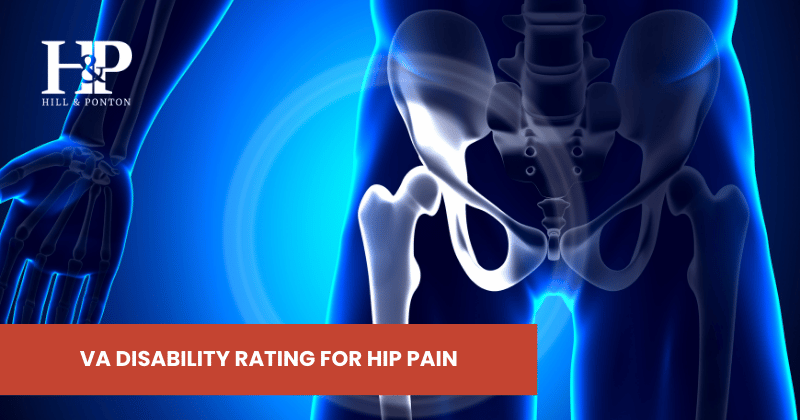Veterans often deal with a wide range of digestive problems that disrupt their day-to-day life. Some of the most serious ones are functional gastrointestinal disorders (FGIMDs) – a group of conditions that cause chronic digestive problems but don’t show any clear physical signs during standard medical tests. That means even though a veteran is suffering from painful, disruptive symptoms, doctors might not see anything unusual when they perform an endoscopy, take X-rays, or review lab results.
The word “functional” means the problem lies in how the digestive system operates. In some cases, the muscles that move food through your gut might not be working the way they should. Other times, the nerves in the digestive tract might be overly sensitive, reacting more strongly than usual. There’s also the gut-brain connection to consider—if communication between the two is off, it can throw your whole system out of sync. All of this can lead to uncomfortable, frustrating symptoms that are tough to manage.
Veterans dealing with FGIMDs might experience ongoing abdominal discomfort or pain, frequent bloating, gas, nausea, vomiting, constipation, or diarrhea—sometimes switching between both. The symptoms can flare up with stress, changes in routine, or even certain foods. Because these conditions are hard to “see,” getting the right diagnosis can take time and patience.
To be officially diagnosed with a functional gastrointestinal disorder, medical professionals typically follow well-established clinical guidelines. One of the first things they look for is how long the symptoms have been going on. Usually, the problems must have started at least six months before the diagnosis and have been occurring regularly for at least the last three months. This timeline helps rule out temporary illnesses and ensures that the condition is truly chronic, not just a passing issue.
While FGIMDs don’t always lead to dangerous complications on their own, they can be incredibly disruptive. Veterans may find it hard to eat normally, travel far from home, or feel comfortable in public spaces due to unpredictable bowel habits or abdominal pain. These issues can also spill over into mental health, causing increased stress, anxiety, and depression.
Functional gastrointestinal disorders are now widely recognized by the VA and medical professionals alike, especially among veterans who served in stressful environments or were exposed to hazardous materials during their service.
How the VA Rates Functional Gastrointestinal Disorders
Functional gastrointestinal disorders such as dyspepsia, functional bloating and constipation, and diarrhea are assigned VA ratings from 10% to 30% under the diagnostic code 7319 (Irritable Bowel Syndrome). Alternatively, the VA may use Diagnostic Code 7356: Gastrointestinal Dysmotility Syndrome. VA is required to use the diagnostic code which provides the highest rating for the veteran’s symptoms to maximize the veteran’s benefits.
Gastrointestinal dysmotility syndrome refers to abnormal movement of the digestive tract, often without a clear structural cause. It can result in symptoms like chronic vomiting, intestinal obstruction, abdominal pain, and the need for special nutrition methods. The VA ratings for Gastrointestinal Dysmotility Syndrome range from 10% to 80%.
- 80% rating – Requiring complete dependence on total parenteral nutrition (TPN) or continuous tube feeding for nutritional support
- 50% rating – Requiring intermittent tube feeding for nutritional support; with recurrent emergency treatment for episodes of intestinal obstruction or regurgitation due to poor gastric emptying, abdominal pain, recurrent nausea, or recurrent vomiting
- 30% rating – With symptoms of chronic intestinal pseudo-obstruction (CIPO) or symptoms of intestinal motility disorder, including but not limited to, abdominal pain, bloating, feeling of epigastric fullness, dyspepsia, nausea and vomiting, regurgitation, constipation, and diarrhea, managed by ambulatory care; and requiring prescribed dietary management or manipulation
- 10% rating – Intermittent abdominal pain with epigastric fullness associated with bloating; and without evidence of a structural gastrointestinal disease
Types of Functional Gastrointestinal Disorders
Functional gastrointestinal disorders don’t follow a one-size-fits-all pattern. While they share common traits—like chronic digestive symptoms without obvious physical damage—they can show up in very different ways depending on which part of the digestive tract is affected and how the body reacts.
Some veterans may struggle with intense abdominal pain, while others deal with unpredictable bowel movements, constant bloating, or difficulty digesting certain foods. What makes these disorders “functional” is that they stem from problems with how the digestive system operates—not from ulcers, tumors, or inflammation you can see on a scan.
Below are some of the most common FGIMDs acknowledged by the VA, along with other conditions that often come up during claims for service-connected digestive issues. While not all of these fall under the same rating codes, they often appear together and can affect a veteran’s ability to live, work, and function comfortably.
Irritable Bowel Syndrome
Irritable Bowel Syndrome (IBS) is one of the most frequently diagnosed functional gastrointestinal disorders among veterans. It typically involves ongoing abdominal pain linked to irregular bowel habits, such as chronic diarrhea, constipation, or a back-and-forth cycle between the two. These symptoms can worsen under stress, which is why many veterans who’ve faced combat, deployments, or high-pressure duties report flare-ups tied to their military service. Though IBS doesn’t cause physical damage to the intestines, it can significantly affect daily life, from disrupting meals to limiting social or work activities.
Abdominal Pain Syndrome
Abdominal pain syndrome involves chronic stomach pain that doesn’t always show up on tests, but still has a real impact. Veterans may develop this condition due to stress, toxic exposure, or wear and tear during service. This ongoing pain can affect everything from eating to working and sleeping, and, over time, it may lead to anxiety or depression. In some cases, chronic abdominal pain might also point to more serious issues like ulcers or inflammatory bowel disease.
Functional Dyspepsia
Functional dyspepsia is a long-term digestive condition that causes pain or discomfort in the upper part of the stomach, especially after meals. Veterans living with this condition might feel full too quickly, bloated, or nauseous. Belching and stomach pressure are also common. These symptoms can drag on for months and make eating feel like a chore, even when there’s no visible damage to the digestive system.
The causes aren’t always clear, but, for many veterans, the problem may be linked to stress from service, major shifts in eating habits, side effects from medication, or an infection like H. pylori. Over time, the constant discomfort can lead to poor nutrition, unwanted weight loss, and sometimes more serious problems like acid reflux or peptic ulcers. Functional dyspepsia is rated under the VA’s broader category for functional gastrointestinal disorders.
Chronic Diarrhea
Chronic diarrhea is more than just an occasional stomach issue—it’s a condition that sticks around and can seriously interfere with daily life. For veterans, it may show up on its own or as part of another digestive disorder like IBS. The symptoms often include frequent loose stools, cramping, and urgency, which can be both physically draining and socially isolating.
If it goes untreated, chronic diarrhea can lead to dehydration, nutritional problems, and weight loss. Some veterans may struggle to stay active, work, or even leave the house during flare-ups. Because it often overlaps with other gastrointestinal issues, the VA typically evaluates chronic diarrhea under the same rating criteria used for functional gastrointestinal disorders.
Other Gastrointestinal Conditions
Not every stomach issue fits into the category of a functional disorder. Some conditions have clear physical causes—like inflammation, damage to the gut lining, or long-term exposure to toxic substances. The VA recognizes several of these disabilities, especially when they developed during or after military service.
Gastroesophageal Reflux Disease
Gastroesophageal Reflux Disease (GERD) happens when stomach acid flows back into the esophagus, causing a burning feeling in the chest, known as heartburn. Over time, this backflow can lead to trouble swallowing, chronic cough, or even damage to the esophagus. Many veterans experience GERD after service, especially those exposed to environmental hazards or who developed related digestive conditions.
Celiac Disease
Celiac Disease is an autoimmune condition where eating gluten triggers a harmful response in the small intestine. For veterans, this can lead to long-term digestive problems, malnutrition, and other health issues if not properly managed. The VA now recognizes celiac disease under its own diagnostic code 7355, which helps ensure more accurate disability evaluations.
Chronic Gastritis
Chronic Gastritis is a condition where the lining of the stomach stays inflamed over time. It can cause symptoms like stomach pain, nausea, bloating, and a feeling of fullness after eating small amounts. In veterans, it may be linked to stress, certain medications, or infections. Though not always severe, long-term gastritis can lead to ulcers or other complications.
Diverticulosis and Diverticulitis
Diverticulosis occurs when small pouches form along the walls of the colon, while diverticulitis happens when those pouches become inflamed or infected. Veterans may experience symptoms like abdominal pain, fever, nausea, or changes in bowel habits. Diverticulitis can be painful and may require medical treatment.
Inflammatory Bowel Disease (IBD)
Inflammatory Bowel Disease (IBD) includes two serious conditions that affect the digestive tract: ulcerative colitis and Crohn’s disease. Both involve chronic inflammation, which can lead to pain, weight loss, fatigue, and long-term damage to the intestines. While they share some symptoms, they impact the body differently and require separate evaluations.
Hernia
Hernias, which happen when an internal organ or tissue pushes through a weak spot in the surrounding muscle or connective tissue, can often be linked to physical strain during service. The VA recognizes and rates hiatal hernia and inguinal, femoral, or ventral hernias.
Pancreatitis
Pancreatitis is inflammation of the pancreas, a gland that helps with digestion and blood sugar control. Veterans with this condition may experience severe abdominal pain, nausea, vomiting, and digestive problems. In some cases, it can become chronic and lead to long-term complications, including weight loss and diabetes. The VA may recognize pancreatitis as service-connected depending on your medical history and toxic exposures.
Presumptive Gastrointestinal Conditions
Some digestive conditions are hard to trace back to one cause, especially when symptoms don’t show up until years after service. That’s why the VA has a list of presumptive conditions it automatically links to military service under specific circumstances.
If you served in specific locations, were exposed to certain hazards, or fall into one of the recognized groups, you may not have to prove direct service connection. This can make the claims process faster and more straightforward for veterans dealing with long-term gastrointestinal problems.
Gulf War Presumptive Conditions
If you served in the Southwest Asia theater of operations or certain parts of Afghanistan, Syria, or Uzbekistan during the Gulf War era, the VA may automatically connect certain long-term health issues to your service. For gastrointestinal problems, the VA recognizes the following presumptive conditions related to Gulf War service:
- Functional gastrointestinal disorders
- Irritable Bowel Syndrome (IBS)
- Gastrointestinal symptoms of an undiagnosed illness
To qualify, your symptoms must last at least six months, and you must have developed the condition during active duty or at any time after leaving the service. You also need to have served in one of the approved locations during the qualifying period.
Burn Pit Presumptive Conditions
Veterans exposed to burn pits during deployments—especially in places like Iraq, Afghanistan, and Djibouti—may develop serious health problems years after exposure. The VA now recognizes certain cancers as presumptive for veterans who served in these areas.
You don’t have to prove a direct connection to your service if you’re diagnosed with pancreatic cancer or with gastrointestinal cancer of any type. If you meet the location and service date requirements, these conditions are presumed to be caused by toxic exposure from burn pits.
Chronic Conditions Presumptive One Year After Separation
Some gastrointestinal conditions may not show up right away after military service. That’s why the VA allows presumptive service connection for certain chronic illnesses if they appear within one year of discharge, even if there was no diagnosis while still in uniform. For digestive-related issues, the following conditions fall under this rule:
- Ulcers, peptic (gastric or duodenal)
- Gallstones
- Cirrhosis
If one of these shows up in your medical records within that first year after separation, the VA may presume it’s connected to your time in service.
Presumptive Conditions for POW
Veterans who were prisoners of war (POWs) for at least 30 days may qualify for presumptive service connection if they develop certain health conditions and they are rated at 10% or higher. For gastrointestinal issues, the VA presumes a connection to service for the following:
- Chronic dysentery
- Helminthiasis (intestinal parasite infections)
- Irritable Bowel Syndrome (IBS)
- Peptic ulcer disease
- Cirrhosis of the liver
Presumptive Conditions for Ionizing Radiation
Veterans exposed to ionizing radiation from nuclear weapons testing, certain military occupations, or assignments in radiation-risk areas may qualify for presumptive service connection if they later develop cancer. When it comes to the digestive system, the VA recognizes the following gastrointestinal cancers as presumptive:
- Cancers of the bile ducts
- Colon cancer
- Esophageal cancer
- Gall bladder cancer
- Liver cancer
- Pancreatic cancer
- Small intestine cancer
- Stomach cancer
These cancers are evaluated under Diagnostic Code 7343 for malignant neoplasms of the digestive system and get a temporary 100% disability rating during active treatment. After treatment ends, the VA will re-evaluate based on any lasting symptoms or complications.
Service Connecting a Non-Presumptive Condition
If your gastrointestinal condition isn’t on the VA’s presumptive list, you can still get benefits—you just have to prove it’s directly connected to your service. This is called a non-presumptive service connection, and it often depends on strong medical evidence, detailed personal statements, and sometimes expert opinions.
You’ll need to show that your symptoms started during or shortly after your time in uniform, or that something in your service—like stress, injury, or toxic exposure—led to your condition. This may be difficult and it’s not uncommon for the VA to deny a claim the first time. If that’s the case, Hill & Ponton may be able to help you challenge the decision and gather the proof you need. Get a free evaluation and we’ll point you in the right direction.




